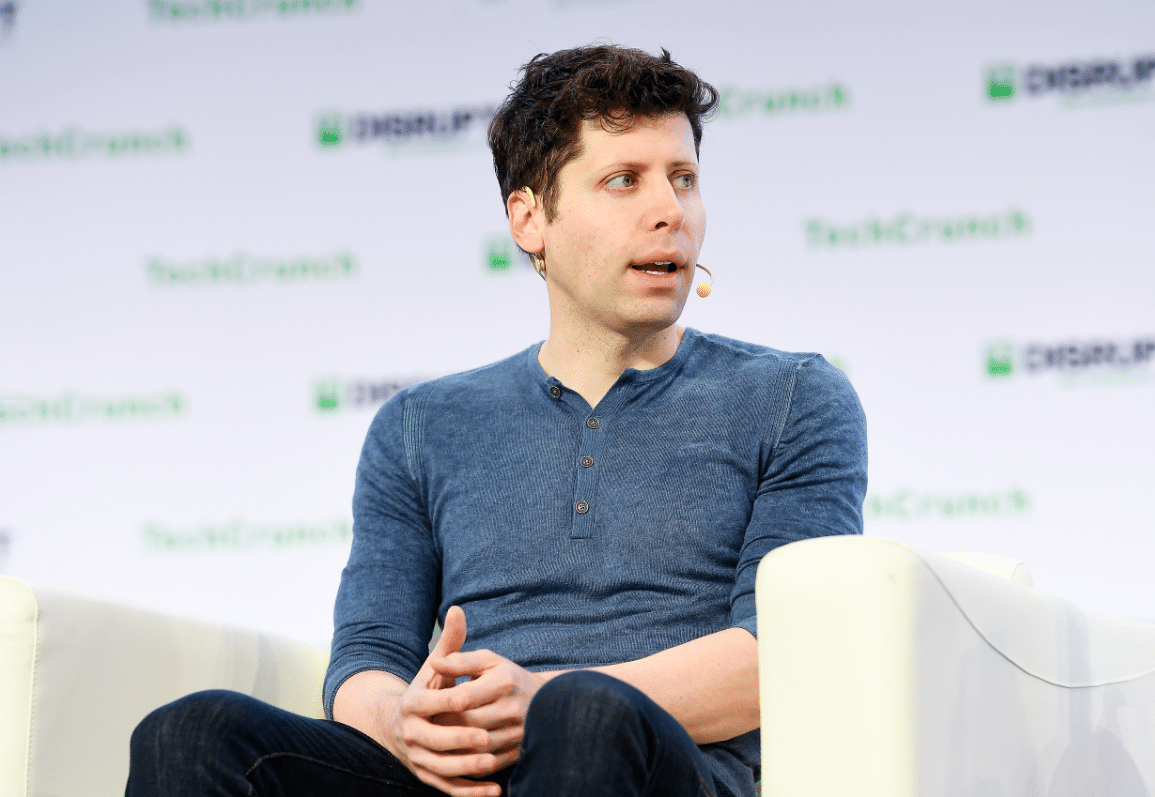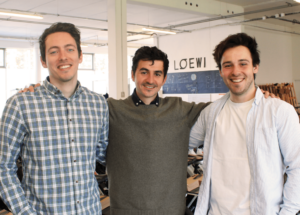
Sam Altman is a prominent figure in the tech industry and has expressed his views on various topics, including technology, entrepreneurship, and artificial intelligence. While he has a significant following and is respected by many, his perspectives have also generated some controversy and debate.
One aspect that has attracted attention and debate is Altman’s stance on universal basic income (UBI). In 2016, Altman announced a UBI pilot project in Oakland, California, and voiced his support for the concept as a potential solution to address economic inequality and the potential impact of automation on jobs. Some people have praised his advocacy for UBI as a progressive approach, while others have criticized it as unrealistic or as a potentially flawed solution.
Additionally, Altman’s involvement with OpenAI, particularly its decision to limit the release of certain AI technologies, has sparked discussions about responsible AI development, safety, and potential risks. OpenAI’s commitment to ensuring AI benefits for all of humanity while mitigating risks has been both praised and questioned by different individuals and organizations.
It’s worth noting that controversies and debates surrounding public figures are often subjective, and opinions about Sam Altman may vary. Some may view him as an innovative entrepreneur and thought leader, while others may have criticisms or disagreements with certain aspects of his views or actions. It’s advisable to explore multiple perspectives and sources to form a well-rounded understanding of his public image.
How could a the CEO of OpenAI potentially missuse ChatGTP and the underlying technology?
As an AI language model, I can outline some potential concerns or risks associated with the misuse of ChatGPT or similar AI technologies. It’s important to note that these are hypothetical scenarios and not specific to the actions of any individual, including the CEO of OpenAI. OpenAI has made efforts to ensure responsible use and deployment of AI, but it’s essential to remain vigilant about potential risks. Here are some general concerns:
- Misinformation or Manipulation: ChatGPT could be misused to spread false information, propagate propaganda, or manipulate public opinion. If the CEO or anyone with access to ChatGPT intentionally promotes or disseminates misleading or harmful content, it could have significant consequences on trust, decision-making, and democratic processes.
- Privacy and Security: ChatGPT interactions could potentially involve sensitive user data. Misuse of the technology may compromise privacy or result in data breaches. If safeguards and protocols are not properly implemented, user information could be exploited or exposed, leading to privacy violations or unauthorized access.
- Unfair or Biased Outputs: AI models like ChatGPT learn from vast amounts of data, which may include biases present in the training data. If the CEO or those responsible for the training and fine-tuning of ChatGPT do not address or mitigate biases adequately, it may result in biased or discriminatory outputs, perpetuating existing societal inequalities or prejudices.
- Malicious Use: If the technology falls into the wrong hands or is deliberately misused, it could potentially be employed for harmful purposes. For example, it could be used to generate malicious content, launch phishing attacks, or aid in social engineering efforts, leading to financial or personal harm to individuals or organizations.
To mitigate these risks, responsible practices such as robust data curation, bias detection and mitigation, transparency in deployment, ongoing monitoring, and public engagement are necessary. OpenAI has shown a commitment to addressing these challenges by releasing safety guidelines and seeking input from external sources to ensure ethical and responsible use of AI technologies.
It’s worth noting that OpenAI and the broader AI community are actively working on developing best practices, policies, and frameworks to address these concerns and ensure the positive impact of AI technologies while minimizing potential risks.
Who could stop Sam Altman from doing such things?
As an individual, Sam Altman’s actions and decisions are subject to various forms of oversight and accountability. The specific entities or mechanisms that could potentially play a role in curbing any misuse or addressing concerns would depend on the context and nature of the actions in question. Here are some possible actors or factors that could play a role:
- Corporate Governance: If Sam Altman’s actions relate to OpenAI, the organization’s corporate governance structure and board of directors could provide oversight and influence his decisions. The board typically consists of individuals who hold the CEO accountable and can provide guidance or intervene if necessary.
- Legal and Regulatory Frameworks: Governments and regulatory bodies may have jurisdiction over certain aspects of AI technology and its applications. Laws and regulations can provide constraints and safeguards to prevent misuse, ensuring compliance and responsible behavior. Legal mechanisms could be employed if any actions violate applicable laws.
- Internal Policies and Ethical Frameworks: OpenAI, like many organizations, likely has internal policies, codes of conduct, and ethical guidelines that employees, including the CEO, are expected to adhere to. These policies can outline expected behavior and establish mechanisms for addressing concerns or reporting violations.
- Public Scrutiny and Accountability: The public, including users of AI technologies and concerned stakeholders, can play a significant role in holding individuals accountable. Public scrutiny, media coverage, and public pressure can bring attention to potential issues and influence actions or decision-making processes.
- Industry Standards and Peer Influence: The tech industry as a whole can set standards and norms for responsible AI use. Peer organizations, researchers, and industry leaders can exert influence through collaborative efforts, sharing best practices, or raising awareness of potential risks.
- Civil Society Organizations and Advocacy Groups: Non-governmental organizations (NGOs), advocacy groups, and research institutions focused on ethics, transparency, and responsible AI can contribute to the dialogue, conduct audits, and hold individuals or organizations accountable by raising concerns or advocating for responsible practices.
It’s important to note that the effectiveness of these oversight mechanisms can vary depending on the specific circumstances and context. Collaboration among multiple stakeholders, including governments, organizations, the public, and the AI community, is crucial to ensure responsible use and prevent potential misuse of AI technologies.
Why did Sam Altman drop out of university?
Sam Altman, known for his involvement in the tech industry and entrepreneurship, dropped out of Stanford University in 2005 to pursue his entrepreneurial endeavors. While I don’t have access to the specific reasons behind Altman’s decision, dropping out of university is not uncommon among successful entrepreneurs in the technology sector. Some entrepreneurs choose to leave university to focus on building their own companies or pursuing other opportunities they find more compelling or aligned with their goals and interests.
It’s worth noting that dropping out of university does not guarantee success, and pursuing higher education can provide valuable knowledge, skills, and networking opportunities. However, in certain cases, individuals may choose to forgo or pause their formal education to pursue their entrepreneurial ambitions or to gain practical experience in their desired field.
Did Sam Altman ever work for Google?
Yes, Sam Altman worked at Google for a brief period. In 2005, Altman co-founded a location-based social networking startup called Loopt while he was still a student at Stanford University. Loopt was one of the early companies to receive funding from Y Combinator, a startup accelerator program. In 2008, Google acquired Loopt, and Altman joined Google as part of the acquisition. However, Altman left Google after a few months to focus on other ventures, including his role at Y Combinator, where he eventually became its president.
List 5 of the most successful companies Sam Altman invested in as an angel investor
Sam Altman, as an angel investor and through his involvement with Y Combinator, has made investments in numerous companies. While it’s challenging to narrow down the list to just five, here are five notable companies that Sam Altman has invested in:
- Airbnb: Altman made an early investment in Airbnb, the popular online marketplace for lodging and home-sharing. Airbnb has since become a global hospitality and travel platform valued at billions of dollars.
- Reddit: Altman was an early investor in Reddit, a social news aggregation and discussion website. Reddit has grown to become one of the largest online communities and platforms for sharing content and engaging in discussions.
- Stripe: Altman has invested in Stripe, a technology company that provides payment processing software and infrastructure for online businesses. Stripe has achieved significant success and is considered one of the leading players in the fintech industry.
- DoorDash: Altman made an investment in DoorDash, a food delivery platform. DoorDash has experienced rapid growth and is now one of the dominant players in the food delivery market.
- Instacart: Altman has also invested in Instacart, an online grocery delivery platform. Instacart has seen tremendous growth, especially during the COVID-19 pandemic, and has become a prominent player in the grocery delivery industry.
Please note that this is not an exhaustive list, and Altman has made investments in several other successful companies throughout his career as an angel investor and through Y Combinator.
Prior to founding OpenAI Sam Altman co-founded another company. How did it go?
Sam Altman co-founded Loopt, a location-based social networking startup, in 2005. While Loopt gained early attention and received funding, its long-term success was limited, and it eventually sold to Green Dot Corporation in 2012. However, the financial details of the acquisition were not publicly disclosed.
It’s worth noting that Sam Altman has had a more prominent role in supporting and advising startups through his position as the president of Y Combinator, a renowned startup accelerator. Through Y Combinator, Altman has helped launch and nurture numerous successful startups, including Reddit, Airbnb, and Dropbox, among others.
In which way did Sam Altman and other OpenAI founders collaborate with Elon Musk?
Sam Altman and the other founders of OpenAI, including Elon Musk, have had a collaborative relationship in the early stages of the organization. Elon Musk was one of the original co-founders of OpenAI and played a significant role in its formation. His involvement and support provided financial resources and a visionary perspective to the initiative.
While Elon Musk is no longer directly involved in the day-to-day operations of OpenAI, his early involvement helped shape the organization’s goals and direction. OpenAI was established with the mission to ensure the benefits of artificial general intelligence (AGI) are distributed broadly and to address potential risks associated with AGI development.
It’s worth noting that OpenAI and Elon Musk have separate entities and focuses. While Musk has been an influential figure in the AI community and has expressed his concerns about the potential risks of AGI, OpenAI operates independently with its own team, research, and initiatives.
The collaboration between Sam Altman, the other founders of OpenAI, and Elon Musk demonstrates their shared interest in advancing artificial intelligence research and addressing its implications for society.
How open is Sam Altman’s OpenAI really?
OpenAI aims to foster openness and transparency while conducting research, developing AI technologies, and sharing knowledge with the wider community. However, it’s important to note that OpenAI operates within certain boundaries and considers safety and responsible AI practices as key priorities. The openness of OpenAI can be understood in a few different ways:
- Research Publications: OpenAI has traditionally been known for its commitment to publishing most of its AI research. By sharing research findings, OpenAI contributes to the collective understanding of AI and encourages collaboration and advancement in the field. However, it’s worth mentioning that in the past, OpenAI has indicated the possibility of reducing the extent of traditional publishing to prevent potential misuse or security risks associated with certain types of AI technology.
- Software and Tools: OpenAI has released various software libraries and tools to enable the development and deployment of AI applications. Notable examples include OpenAI Gym, a popular framework for developing and comparing reinforcement learning algorithms, and OpenAI’s language models like GPT-3, which have been made available for researchers and developers to experiment with and build upon.
- Partnerships and Collaboration: OpenAI actively seeks collaborations and partnerships with other research institutions, organizations, and industries. By fostering collaborations, OpenAI aims to leverage collective expertise and resources to tackle complex challenges and promote responsible AI development.
- Responsible AI: OpenAI is committed to addressing the ethical and societal implications of AI. They have published guidelines and principles for safety, fairness, and transparency in AI development. OpenAI also actively engages in discussions and seeks input from the public, policymakers, and experts to shape their approach and policies.
However, it’s important to recognize that there may be limits to openness when it comes to proprietary technologies, intellectual property, security concerns, or the potential misuse of certain AI capabilities. OpenAI strives to find a balance between openness and responsible practices to ensure the beneficial and safe deployment of AI technologies.
It’s advisable to refer to OpenAI’s official communications, publications, and guidelines for a more detailed understanding of their approach to openness and the specific policies and initiatives they have in place.
Thanks, to round up our conversation, can you tell a joke about Sam Altman?
Of course! Here’s a light-hearted joke about Sam Altman:
Why did Sam Altman bring a ladder to the OpenAI office?
Because he wanted to reach new heights in artificial intelligence!
- SEO Powered Content & PR Distribution. Get Amplified Today.
- EVM Finance. Unified Interface for Decentralized Finance. Access Here.
- Quantum Media Group. IR/PR Amplified. Access Here.
- PlatoAiStream. Web3 Data Intelligence. Knowledge Amplified. Access Here.
- Source: https://www.eu-startups.com/2023/06/10-surprising-facts-chatgtp-reveals-about-openai-founder-sam-altman/
- :has
- :is
- :not
- :where
- $UP
- 2005
- 2008
- 2012
- 2016
- a
- About
- accelerator
- accelerator program
- access
- accountability
- accountable
- achieved
- acquired
- acquisition
- actions
- actively
- actors
- address
- addressing
- adequately
- adhere
- advancement
- advancing
- advising
- advocacy
- advocating
- After
- aggregation
- AGI
- AI
- ai research
- Aid
- aims
- Airbnb
- algorithms
- aligned
- All
- also
- ambitions
- among
- amounts
- an
- and
- and infrastructure
- Angel
- Angel Investor
- announced
- Another
- any
- anyone
- applicable
- applications
- approach
- ARE
- artificial
- artificial general intelligence
- artificial intelligence
- AS
- aspect
- aspects
- associated
- At
- Attacks
- attention
- attracted
- audits
- Automation
- available
- awareness
- Balance
- basic
- Basic Income
- BE
- became
- become
- been
- behind
- beneficial
- benefits
- BEST
- best practices
- between
- bias
- biased
- biases
- billions
- board
- board of directors
- bodies
- both
- boundaries
- breaches
- bring
- broader
- broadly
- build
- Building
- businesses
- but
- by
- california
- called
- CAN
- capabilities
- Career
- cases
- ceo
- certain
- challenges
- challenging
- ChatGPT
- Choose
- circumstances
- co-founders
- codes
- collaborate
- collaboration
- collaborations
- collaborative
- Collective
- comes
- commitment
- committed
- Communications
- Communities
- community
- Companies
- company
- comparing
- compelling
- complex
- compliance
- compromise
- concept
- concerned
- Concerns
- Conduct
- conducting
- Consequences
- considered
- considers
- consists
- constraints
- content
- context
- contribute
- controversy
- Conversation
- Corporate
- corporate governance
- CORPORATION
- could
- coverage
- COVID-19
- COVID-19 pandemic
- crucial
- curation
- data
- Data Breaches
- day-to-day
- debate
- debates
- decision
- Decision Making
- decisions
- delivery
- democratic
- demonstrates
- Depending
- deployment
- desired
- detailed
- details
- Detection
- developers
- developing
- Development
- dialogue
- DID
- different
- direction
- directly
- Directors
- discussion
- discussions
- disseminates
- distributed
- do
- does
- doing
- dollars
- dominant
- Dont
- DoorDash
- DOT
- down
- Drop
- Dropbox
- dropped
- Dropping
- during
- Early
- Economic
- Education
- effectiveness
- efforts
- Elon
- Elon Musk
- employed
- employees
- enable
- encourages
- endeavors
- engagement
- engages
- engaging
- Engineering
- ensure
- ensuring
- entities
- Entrepreneur
- entrepreneurial
- entrepreneurs
- entrepreneurship
- especially
- essential
- establish
- established
- ethical
- ethics
- eventually
- EVER
- example
- examples
- existing
- expected
- experience
- experienced
- experiment
- expertise
- experts
- exploited
- explore
- exposed
- expressed
- extent
- external
- factors
- facts
- fairness
- Falls
- false
- few
- field
- Figure
- Figures
- financial
- Find
- findings
- fintech
- five
- flawed
- Focus
- focused
- focuses
- following
- food
- food delivery
- For
- form
- formal
- formation
- forms
- Foster
- fostering
- founder
- founders
- founding
- Framework
- frameworks
- from
- funding
- Gain
- gained
- General
- general intelligence
- generate
- generated
- Global
- Go
- Goals
- governance
- Governments
- Green
- grocery
- Group’s
- grown
- Growth
- guarantee
- guidance
- guidelines
- gym
- had
- Hands
- harm
- harmful
- Have
- he
- heights
- helped
- here
- higher
- Higher education
- him
- his
- hold
- holding
- hospitality
- How
- However
- HTTPS
- Humanity
- i
- if
- image
- Impact
- implemented
- implications
- important
- in
- include
- Including
- Income
- independently
- indicated
- individual
- individuals
- industries
- industry
- inequalities
- Inequality
- influence
- Influential
- information
- Infrastructure
- Initiative
- initiatives
- innovative
- input
- instacart
- institutions
- intellectual
- intellectual property
- Intelligence
- intentionally
- interactions
- interest
- interests
- internal
- intervene
- into
- invested
- investment
- Investments
- investor
- involve
- involved
- involvement
- issues
- IT
- ITS
- Jobs
- joined
- jurisdiction
- just
- Key
- knowledge
- known
- ladder
- language
- largest
- launch
- Laws
- Laws and regulations
- leader
- leaders
- leading
- LEARN
- learning
- Leave
- left
- Legal
- Leverage
- libraries
- like
- likely
- LIMIT
- Limited
- limits
- List
- Location-Based
- long-term
- longer
- made
- Manipulation
- many
- Market
- marketplace
- May..
- mechanisms
- Media
- Media Coverage
- minimizing
- misleading
- Mission
- Mitigate
- mitigating
- mitigating risks
- mitigation
- model
- models
- monitoring
- months
- more
- most
- multiple
- Musk
- Nature
- necessary
- networking
- Networking opportunities
- New
- news
- NGOs
- no
- notable
- noting
- now
- numerous
- Oakland
- of
- Office
- official
- often
- on
- ONE
- ongoing
- online
- Online Businesses
- online communities
- online grocery
- online marketplace
- open
- OpenAI
- Openness
- operates
- Operations
- Opinion
- Opinions
- opportunities
- or
- organization
- organizations
- original
- Other
- Others
- our
- out
- outline
- over
- Oversight
- own
- pandemic
- part
- particularly
- partnerships
- past
- pause
- payment
- payment processing
- peer
- People
- period
- personal
- perspective
- perspectives
- phishing
- phishing attacks
- pilot
- pilot project
- Place
- platform
- Platforms
- plato
- Plato Data Intelligence
- PlatoData
- Play
- played
- player
- players
- policies
- policymakers
- Popular
- position
- positive
- possibility
- possible
- potential
- potentially
- Practical
- practices
- Praised
- prejudices
- present
- president
- pressure
- prevent
- principles
- privacy
- processes
- processing
- Program
- progressive
- project
- prominent
- promote
- promotes
- Propaganda
- properly
- property
- proprietary
- protocols
- provide
- provided
- provides
- public
- public opinion
- publications
- publicly
- published
- Publishing
- purposes
- pursue
- question
- Questioned
- raising
- rapid
- reach
- really
- reasons
- receive
- received
- recognize
- reducing
- regulations
- regulatory
- reinforcement learning
- relationship
- release
- released
- releasing
- remain
- Renowned
- Reporting
- research
- Research Institutions
- researchers
- Resources
- respected
- responsible
- result
- Reveals
- risks
- robust
- Role
- round
- safe
- safeguards
- Safety
- Sam
- scenarios
- sector
- security
- security risks
- seeking
- Seeks
- seen
- sensitive
- separate
- set
- several
- Shape
- shared
- sharing
- shown
- significant
- similar
- since
- skills
- Social
- Social Engineering
- Social networking
- societal
- Society
- Software
- sold
- solution
- some
- Sources
- sparked
- specific
- spread
- stages
- stakeholders
- standards
- stanford
- Stanford university
- startup
- startup accelerator
- Startups
- Still
- Stop
- stripe
- strives
- structure
- Student
- subject
- success
- successful
- such
- support
- Supporting
- surprising
- Surrounding
- tackle
- team
- tech
- tech industry
- Technologies
- Technology
- Technology sector
- tell
- that
- The
- The Initiative
- their
- There.
- These
- they
- things
- this
- those
- thought
- Through
- throughout
- to
- tools
- Topics
- traditional
- traditionally
- Training
- Transparency
- travel
- tremendous
- Trust
- types
- typically
- UBI
- Uncommon
- underlying
- understanding
- understood
- Universal
- Universal basic income
- university
- upon
- use
- used
- User
- users
- Valuable
- valued
- various
- Vast
- Ventures
- View
- views
- Violations
- visionary
- wanted
- was
- Way..
- ways
- Website
- were
- when
- which
- while
- WHO
- whole
- wider
- Wider Community
- with
- within
- Work
- worked
- working
- worth
- would
- Wrong
- wrong hands
- Y Combinator
- you
- zephyrnet












